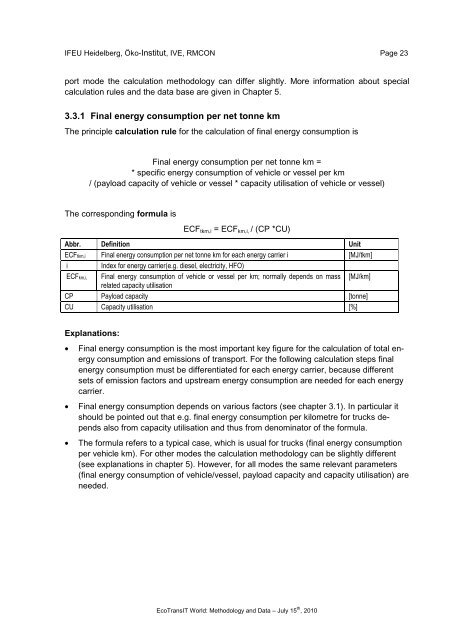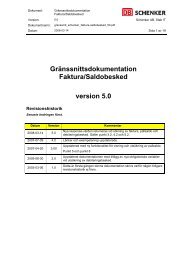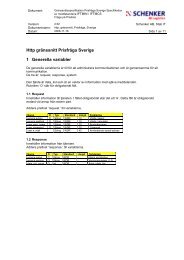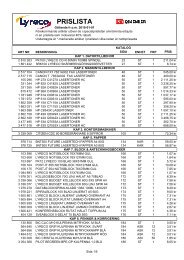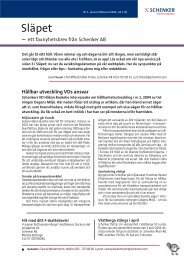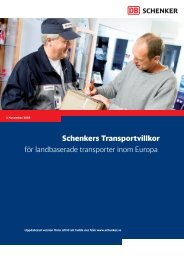Ecological Transport Information Tool for Worldwide ... - Schenker
Ecological Transport Information Tool for Worldwide ... - Schenker
Ecological Transport Information Tool for Worldwide ... - Schenker
Create successful ePaper yourself
Turn your PDF publications into a flip-book with our unique Google optimized e-Paper software.
IFEU Heidelberg, Öko-Institut, IVE, RMCON Page 23<br />
port mode the calculation methodology can differ slightly. More in<strong>for</strong>mation about special<br />
calculation rules and the data base are given in Chapter 5.<br />
3.3.1 Final energy consumption per net tonne km<br />
The principle calculation rule <strong>for</strong> the calculation of final energy consumption is<br />
Final energy consumption per net tonne km =<br />
* specific energy consumption of vehicle or vessel per km<br />
/ (payload capacity of vehicle or vessel * capacity utilisation of vehicle or vessel)<br />
The corresponding <strong>for</strong>mula is<br />
ECF tkm,i = ECF km,i, / (CP *CU)<br />
Abbr. Definition Unit<br />
ECFtkm,i Final energy consumption per net tonne km <strong>for</strong> each energy carrier i [MJ/tkm]<br />
i Index <strong>for</strong> energy carrier(e.g. diesel, electricity, HFO)<br />
ECFkm,i, Final energy consumption of vehicle or vessel per km; normally depends on mass [MJ/km]<br />
related capacity utilisation<br />
CP Payload capacity [tonne]<br />
CU Capacity utilisation [%]<br />
Explanations:<br />
• Final energy consumption is the most important key figure <strong>for</strong> the calculation of total energy<br />
consumption and emissions of transport. For the following calculation steps final<br />
energy consumption must be differentiated <strong>for</strong> each energy carrier, because different<br />
sets of emission factors and upstream energy consumption are needed <strong>for</strong> each energy<br />
carrier.<br />
• Final energy consumption depends on various factors (see chapter 3.1). In particular it<br />
should be pointed out that e.g. final energy consumption per kilometre <strong>for</strong> trucks depends<br />
also from capacity utilisation and thus from denominator of the <strong>for</strong>mula.<br />
• The <strong>for</strong>mula refers to a typical case, which is usual <strong>for</strong> trucks (final energy consumption<br />
per vehicle km). For other modes the calculation methodology can be slightly different<br />
(see explanations in chapter 5). However, <strong>for</strong> all modes the same relevant parameters<br />
(final energy consumption of vehicle/vessel, payload capacity and capacity utilisation) are<br />
needed.<br />
EcoTransIT World: Methodology and Data – July 15 th , 2010


